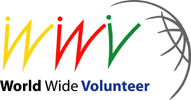
 | Versión para impresión |
Book available at Download book (1759 K)
It was at the African Regional Conference in Bamako in 2002 that the volunteer sector first became involved in the process of the World Summit on the Information Society (WSIS). Since then, volunteers and volunteer organizations have actively contributed both to the preparatory process of the WSIS, the Geneva Summit and the Tunis phase. As one of the families of the International Civil Society Bureau, the WSIS Volunteer Family brings together organizations working with volunteers both locally and at an international level (1) , as well as volunteers themselves. In this article, I would like share some of the outcomes of the work and active participation in the WSIS of a sector that is often underestimated, or even overlooked. The concepts presented in this paper synthesize the outcomes of a collaborative effort of the Volunteer Family. They also outline some of the challenges before us for the future of a society of knowledge accessible to all.
____
(1) Among others, the WSIS Volunteer Family includes ATD Quart Monde, CIVICUS (World Alliance for Citizen Participation), the European Volunteer Center (CEV), the International Association for Volunteer Effort (IAVE), the International Federation of Red Cross and Red Crescent Societies (IFRC), Netcorps-Cyberjeunes, OneWorld, and ICVolunteers (International Conference Volunteers). The latter has to date served as the focal point and secretariat of the WSIS Volunteer Family. Throughout the entire first phase of the WSIS, the civil society Volunteer Family closely collaborated with the United Nations Volunteers Programme (UNV) and the United Nations Information Technology Service (UNITeS).
(2) WSIS Plan of Action, C4. Capacity Building, point 11, www.itu.int/wsis/
(3) WSIS Civil Society Declaration, 2.1.1. and 2.4.5.
(4) United Nations Volunteers Programme.
(5) www.worldwidevolunteer.org/wsis2003
(6) Ibid.
(7) ICV Newsletter, first quarter 2005, http://cyber.icvolunteers.org